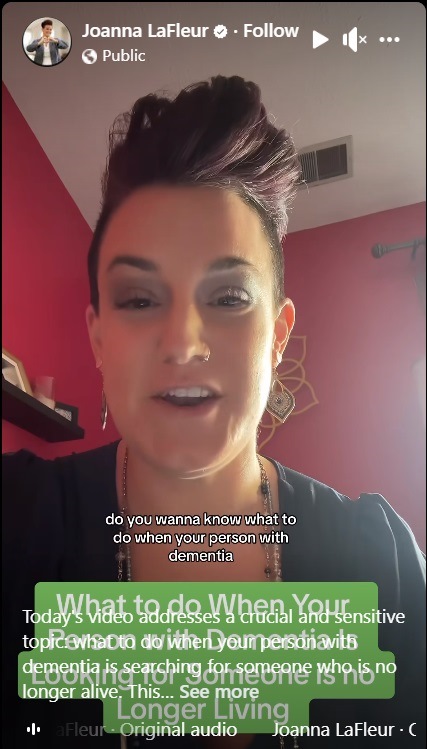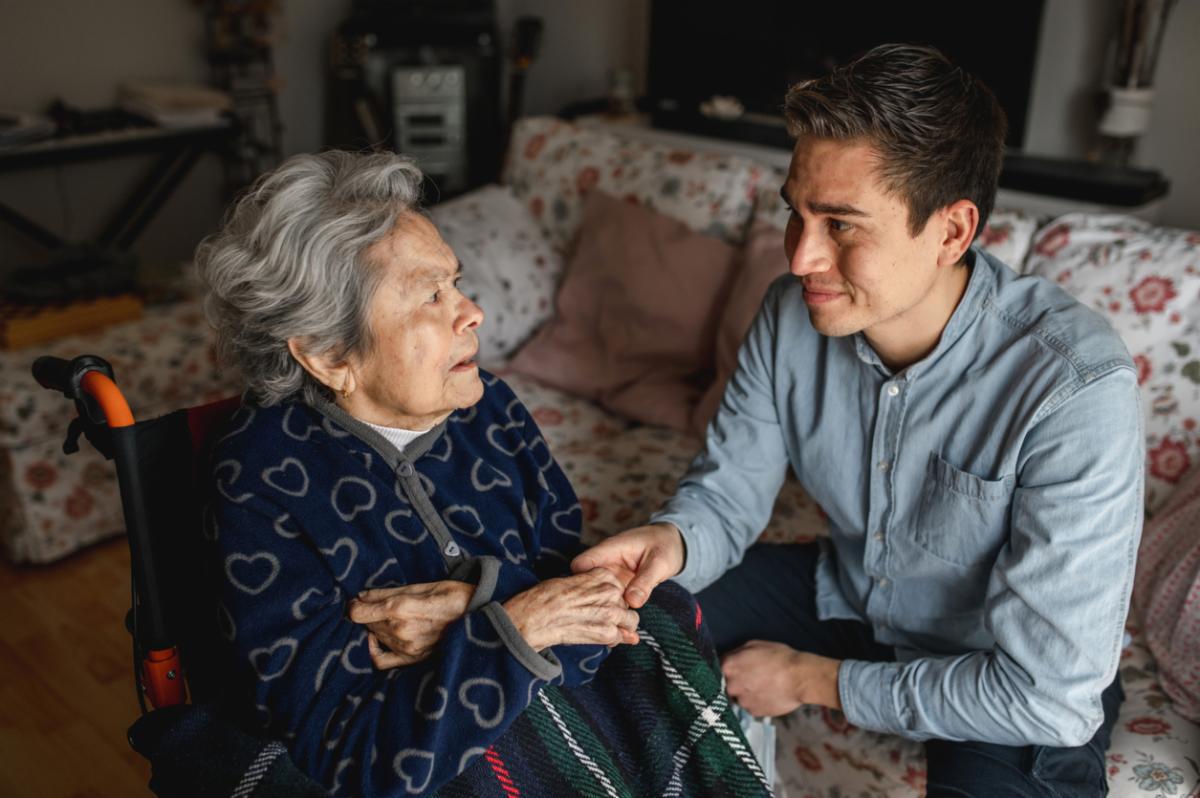Cahoon Care Associates, LLC. | |
|
Hanover, MA: (781) 659-1877
269 Hanover St., Hanover, MA 02339
| |
Sandwich, MA: (774) 994-2212
71 Route 6A, Sandwich, MA 02563
| |
Ellsworth, ME: (207) 667-0870
| |
|
Let's have some fun...and maybe win a prize!
Picture it: Cahoon Care, 2024. The caregiver, Sally, reached the end of her shift, clocked out, and said her goodbyes to the client, Mary.
Sally is blissfully 10 minutes from home when her cell phone rings, and Mary is on the other end. Mary asks Sally to pick up a few groceries on her way back to Mary's tomorrow.
- What TV sit-com does the phrase "Picture it" come from?
- How should Sally respond to Mary?
- Identify two things about Mary's request that are unfair to Sally.
- What could Sally have done differently to prevent this from happening?
- Bonus Question: Who is the character who said, "Picture it...?"
Email Karen@CahoonCare.com with your answers.
- Earn 1 raffle ticket for responding.
- Earn 1 raffle ticket for every answer.
- Earn 5 raffle tickets for every correct answer.
- Earn 10 bonus tickets for the name of the character who used the phrase "Picture it."
The winning ticket will be drawn on April 10th for a choice of two movie tickets or a $30 gas card.
What are some of the things you have experienced with clients where boundaries were crossed or blurred? The following are some examples of pushing the envelope some of you have shared:
-
Excessive cleaning. An important part of our job is light housework. Where is the line drawn from light housekeeping to excessive or deep cleaning? Things such as the garage, porch, cellar, and storage rooms are areas we would not typically be responsible for cleaning. Cleaning that falls outside of standard day-to-day clean-up such as ironing or washing the windows, windowsills, and baseboards fall outside the category of light housekeeping.
Read more...
| |
Therapeutic Fibbing: Why Experts Recommend Lying to Someone with Dementia | |
Honesty isn't always the best policy when it comes to someone with Alzheimer's disease or dementia.
That's because their brain may experience a different version of reality. Dementia damages the brain and causes progressive decline in the ability to understand and process information.
Forcing someone to abandon their version of reality and join our "real world" can cause confusion, pain, anxiety, fear, and anger.
Dementia care experts often recommend a technique called "therapeutic fibbing."
Learn more...
| A Step-By-Step Guide for How to Get Up from a Fall |  | |
Falls can be serious business for seniors - and unfortunately, they're more common than you might realize. In fact, the CDC says more than 1 in 4 people age 65 and older fall each year. Interestingly, if you fall just once, your chances of falling again double.
Not only that, but if older adults stay on the floor for too long or get up incorrectly, they could cause additional injury, even if they didn't get injured seriously when they initially fell. For example, while on the ground, they could develop serious complications such as pneumonia, dehydration, hypothermia, or even pressure sores.
Falls also have a way of creating a sense of fear in seniors, sometimes causing them to take unnecessary precautions (such as avoiding daily activities) to be sure they don't fall again in the future. The problem is that when someone is less active, they become weaker and more susceptible to a fall.
To remedy the fear and danger of falling, it's wise for seniors to proactively learn safe techniques for how to get up from a fall. This will instill them with confidence that if they do fall, they'll be equipped to get up on their own and/or minimize injuries.
However, it's important to note that they should only consider getting up from a fall if they're not injured or dizzy - and only if they're strong enough to pull themselves up. Additionally, seniors with limited mobility or serious health conditions should always check with their therapist or physician in advance for advice on what to do should they experience a fall.
Learn more on our blog...
| What to Do When Your Person with Dementia is Looking for Someone Who
is No Longer Living |  | |
It can be challenging to know what to do when someone with dementia is searching for someone who is no longer alive.
When we continue to remind them over and over again that the person has died, it is as if they are experiencing the grief of loss repeatedly. This approach is painful for them.
We as caregivers may feel as if we need to be honest with them and make sure that they truly understand what has happened. However, what they need more than honesty is feeling peace and trust.
A better approach would be coming up with a solution that makes sense to them. If it's during the day, you could say that the person is at work. If it's in the evening, you could say that the person is at church, at a men's group, at Kiwanis, or out golfing - whatever the deceased person used to do during those times.
This techique works best for those with Alzheimer's, or those late in the illness of other types of dementia. It doesn't work as well for those with short-term memory loss.
Learn more...
| Daily Senior Care Tip:
8 Ways to Deal with False Dementia Accusations |  | |
Seniors with Alzheimer's disease or dementia commonly accuse the people closest to them of theft, mistreatment, or other terrible things.
While cases of true abuse do exist, oftentimes these accusations are completely untrue and are caused by delusions - strong beliefs in things that aren't real.
It's important to remember that your older adult isn't creating these delusions to hurt you. Their brains are failing, and the delusions and paranoia are symptoms of the disease.
While these dementia accusations can be extremely hurtful to hear, it's important to remember that they're not personal attacks against you. The person's brain can't make sense of what's happening and has created an alternate version of reality to compensate.
Learn why this happens, as well as 8 ways to calm the situation and kindly deal with these dementia accusations.
__________________
DailyCaring provides practical caregiving tips for everyday challenges even the most experienced caregivers face. We hope you enjoy the content (like the article above) as much as we do! Topics range from Alzheimer's/dementia tips to stress relief pointers.
Sign up for DailyCaring, a daily e-newsletter filled with helpful news you can use, and inspirational senior care tips! You can also follow the DailyCaring Facebook page.
| Anniversary Celebrations! | |
Please join us in congratulating the following colleagues on their work anniversaries:
Lydia Gwandaru - 8 years
Geralyn Ziino - 8 years
Mary Grace - 5 years
Jennifer Sargent - 5 years
Gloria Finch - 4 years
Cassandra Stewart-Palmer - 4 years
Denise Hilton - 3 years
Heather Lounder - 3 years
Marly Adolphe - 2 years
Tina Boslee - 2 years
Sandra Nunes DosSantos - 2 years
Nuella Ekute - 2 years
Joy Ezeonugo - 2 years
Mimi Joseph - 2 years
Anastasia Kamau - 2 years
Nadia Oliveira - 2 years
Mindy Asch - 1 year
Callie Bailey - 1 year
Karina Blaquire- 1 year
Erin Cochran - 1 year
Camila DeBarros - 1 year
Valentina Eaton - 1 year
Lisa Giordani - 1 year
Denise May - 1 year
Nadia Sydney - 1 year
Naomi Wilson - 1 year
| $$$ Referral Bonus Recipients $$$ | |
Don't forget that we offer a $300 referral bonus. We know the best caregivers know the best caregivers! Please send them our way, and in turn, we'll send money your way.
Call Sheila at (207) 610-3280 in Maine, or Karen at (781) 635-4968 in Massachusetts with your referrals.
| |
|
Our very own Alan Drew, a 91-year-old professional magician, treated Margery and Carolyn to his self-proclaimed "Best in New England" magic.
He turned two "ordinary" five-dollar bills into two $50 bills before Carolyn and Margery's eyes! Margery then asked him if he could turn some other small bills into bigger ones!
We all appreciate Alan sharing his amazing talent and entertaining us, even if he would not share his secret to making our money grow 10 times instantly!
| |
Video Tips:
Accepting a Dementia Person's View of Reality
| |
People with dementia are in their own reality, which means that sometimes they might insist something happened that really didn't.
Since they are the ones with injured brains, we have to be the ones to change our behavior towards them.
You can fix the problem by accepting their view of reality and doing whatever is necessary to help them move past the issue - even if that means apologizing for something you didn't do.
Learn more in this video.
| "Solutions for Seniors" Interview | |
In February 2024, Cahoon Care's Allan Parker was interviewed by WATD's "Solutions for Seniors" host Chris Shea.
He discussed the needs facing seniors and their families today, as well as described the services Cahoon Care Associates provides to help meet these pressing needs.
Click here to listen to the half-hour interview.
| Do's and Don'ts for Visiting Someone with Dementia |  | |
Just because people suffer from Alzheimer's or dementia doesn't necessarily mean they don't want visitors. There will be days, of course, where they may prefer to be alone or keep to the regular routine, but at other times they will feel more social.
In order for visits from friends or family to be productive, it's important to set the situation up for success by communicating some do's and don'ts so visitors know what they can do and say.
To begin with, the caregiver/host should set the tone by creating the right ambience. Let potential visitors know some ground rules in advance. Only allow one or two visitors in at a time to avoid overwhelming the individual who has dementia. Be sure to schedule visits for the time of day when your older adult is usually at his or her best. Minimize distractions by turning off the television or any loud music. Keep the envirionment calm and quiet by asking anybody not visiting to go into a different room.
Below are 14 essential DO's to remember when visiting someone with Alzheimer's:
- Keep your tone and body language friendly and positive so as not to intimidate.
- Speak loud enough to be heard - but not too loudly.
- Even if the person knows you well, introduce yourself to avoid any embarrassment or confusion if s/he is having a bad day. For example, say, "Hi Grandma, this is your granddaughter, Emma."
Learn more on our blog...
| Alzheimer's Partnership of the South Shore
Caregiver Conference | |
Cahoon Care will be a proud vendor at the upcoming Alzheimer's Partnership of the South Shore Caregiver Conference.
This event will be held on Wednesday, May 8, 2024 from 9:30am - 3:30pm. The location is Congregation Sha'aray Shalom at 1112 Main Street in Hingham.
We'd love to have you stop by and visit us at our table!
|
Caregiving is challenging work. Sometimes we all need to vent and get support. It's important to find an objective audience who is not as close to our experiences as we are, but who can still relate by experiencing similar situations.
If you are on Facebook, take a peek at this amazing support group. You never know - the message you need to hear may be shared there. You'll also have an opportunity to vent to people who will understand and embrace you with open arms.
Please don't forget, your team in the office at Cahoon Care is happy to help or be your sounding board.
| |
We're excited to announce 11 new members of the Cahoon Care team over the past quarter:
Jody Batchelder
Hosean Bel-Duverger
Teiya Fountaine
Elizabeth Hofman
Dorly Jean-Baptiste
Natacha Joseph
Megan Matyjasik
Sylvie Rado
Maggie Sainrilus
Evan Tillman
Kimberly Wolfe
| | | | |